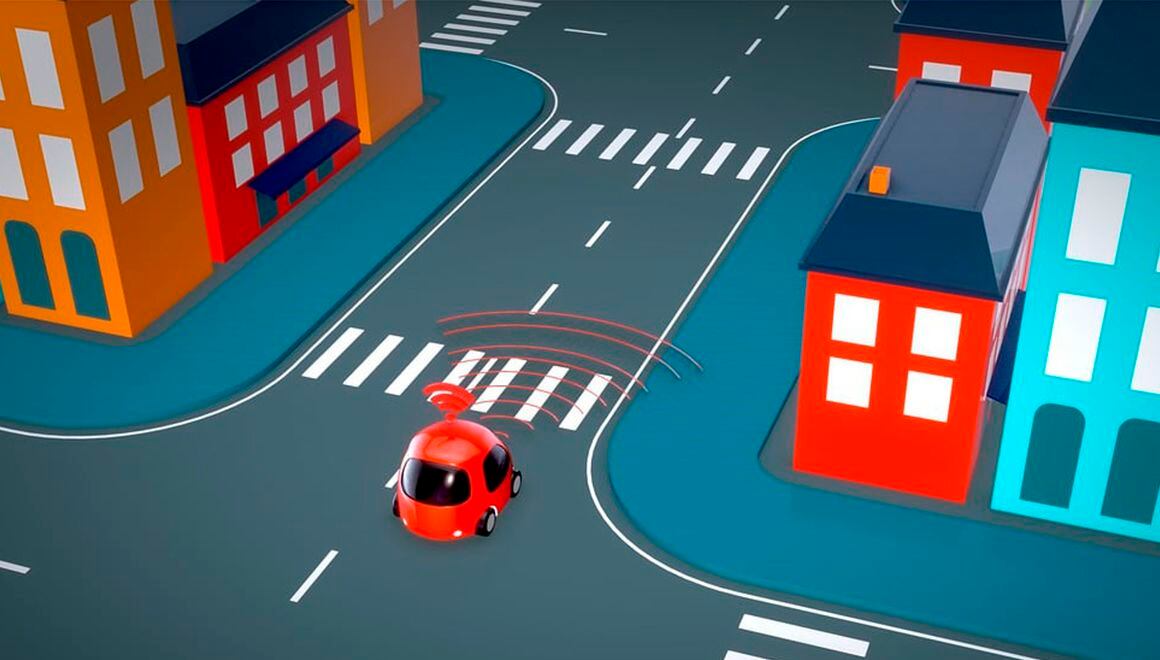In recent years the cars they have become more digital, full of touch screens, sensors such as cameras and radar, with virtual assistants, Internet connection and even artificial intelligence, which will soon lead to greater independence in driving: mechanical cars are being left behind to make way to a vehicle completely autonomous.
But how safe are these cars? Can I be spied on? Is the personal data secure? Can someone use the vehicle from a distance, even to cause damage?
READ ALSO: Autonomous vehicles: How and where do cars that do not need a driver circulate?
First, you have to understand that an autonomous car is known because it does not need a driver, or reduces its participation in driving as it tries to imitate human capabilities. And this is achieved thanks to technology.
Marcelo Bertolami, Intel’s regional technology director for Latin America, likened these vehicles to a data center or computer on wheels. “Although it provides comfort and physical security to users, he told this newspaper.
You also have to know how it works. Since it has intelligent edge computing devices, it can perform analysis and processing of real-time data generated from the simultaneous connection of users. This allows you to respond to problems and/or situations such as traffic, detours, accidents, speeds, among other activities.
READ ALSO: A man opened the wrong Tesla Model 3 with the app and even drove it for several minutes
Now, according to Bertolami, these units “collect and process enormous amounts of data to exchange them with other autonomous vehicles, and with the components and systems of the transportation infrastructure.” But it is also an open door for some important information to leak out.
And what about computer security?
Last year a Kaspersky Connected Apps report noted that 58% of connected car apps do not specify that they use owner data. It also points out that 14% of these do not have a form of contact. That is to say, it is not possible to inform about any problem that the vehicle has. A panorama of insecurity loaded with questions.
As detailed by the Intel specialist, not all the data collected by the vehicle is strictly necessary to allow connected and autonomous driving. This is the case of the data that the user provides voluntarily for informational, entertainment or convenience purposes. Personal data, driving destinations or telephone contacts, vulnerable to any attack, are also recorded.
READ ALSO: On board an electric car through the streets of Lima (are we ready for this technology?) | CHRONICLE
, and the amount of data captured is increasing day by day. On the other hand, devices like USB adapters that transfer data or telematics harvesting devices could be used as a proxy for other attacks,” she commented.
For his part, Fabio Assolini, director of the Research and Analysis Team for Latin America at Kaspersky, pointed out that in 2017 an experiment was carried out to show the vulnerabilities. “Although important and necessary cybersecurity measures are being implemented, unfortunately there may still be room for security breaches,” he said in communication with this newspaper.
One of the conclusions of the work is that the data must be protected not only in the car, but also in the applications offered by the manufacturers to work with the vehicle.

Why is application evaluation important? According to Assolini, many applications allow the doors to be unlocked and the deactivation of the car’s alarm system. Therefore, and even if a key is needed, by means of a programming unit the thief can write a new key in the system and that’s it: the theft is done.
READ ALSO: Satellite Internet: how it works and how true it is that it reaches the most remote areas of Peru
The autonomous car: a weapon?
But theft of information or theft of the vehicle itself are not the only problems. Although it may seem incredible, an autonomous car could be remote controlled and even used as a weapon, depending on the purpose of the criminal.
The Kaspersky spokesman said that one of the most famous experiments carried out by Charlie Miller and Chris Valasek showed that it is possible to perform actions ranging from remotely manipulating the air conditioning, the radio, the windshield wipers to controlling the brakes, accelerator and cutting the transmission.

READ ALSO: The team of students from Piura who created a system to bring electricity to their community
It is a real threat that Bertolami also considers as a possibility due to the very infrastructure of the vehicle: the steering wheel, the speed, the brakes, the transmission and all those components that keep the car running on the open road”.
Now, it must also be considered that these vehicles are under development and new threats and vulnerabilities could appear as the levels of autonomy progress.
“Although, it is possible to control a car remotely. Currently, the threat is minimal, but over time it will increase. In a few years, this situation will be much more dangerous,” warned the Kaspersky cybersecurity specialist. And there is still time to avoid this dangerous scenario. Today it is a challenge for the present and the future of security.
Source: Elcomercio
I have worked in the news industry for over 10 years. I have a vast amount of experience in writing and reporting. I have also worked as an author for a number of years, writing about technology and other topics.
I am a highly skilled and experienced journalist, with a keen eye for detail. I am also an excellent communicator, with superb writing skills. I am passionate about technology and its impact on our world. I am also very interested in current affairs and the latest news stories.
I am a hardworking and dedicated professional, who always strives to produce the best possible work. I am also a team player, who is always willing to help out others.

:quality(75)/cloudfront-us-east-1.images.arcpublishing.com/elcomercio/DJGD7FYDNRHZNCSF3OP4IL354M.jpg)

:quality(75)/cloudfront-us-east-1.images.arcpublishing.com/elcomercio/VG4NWTQT7RH7VIINDA5ETKQ4IQ.jpg)
:quality(75)/cloudfront-us-east-1.images.arcpublishing.com/elcomercio/6DVSHYETMVE5RBHH634UMGECIA.jpg)
:quality(75)/cloudfront-us-east-1.images.arcpublishing.com/elcomercio/AG7VZATYUBGLPCW62HST5SAW7I.jpg)
:quality(75)/cloudfront-us-east-1.images.arcpublishing.com/elcomercio/PW26UKSXIVGMHPJO3CSXVLNZMA.jpg)
